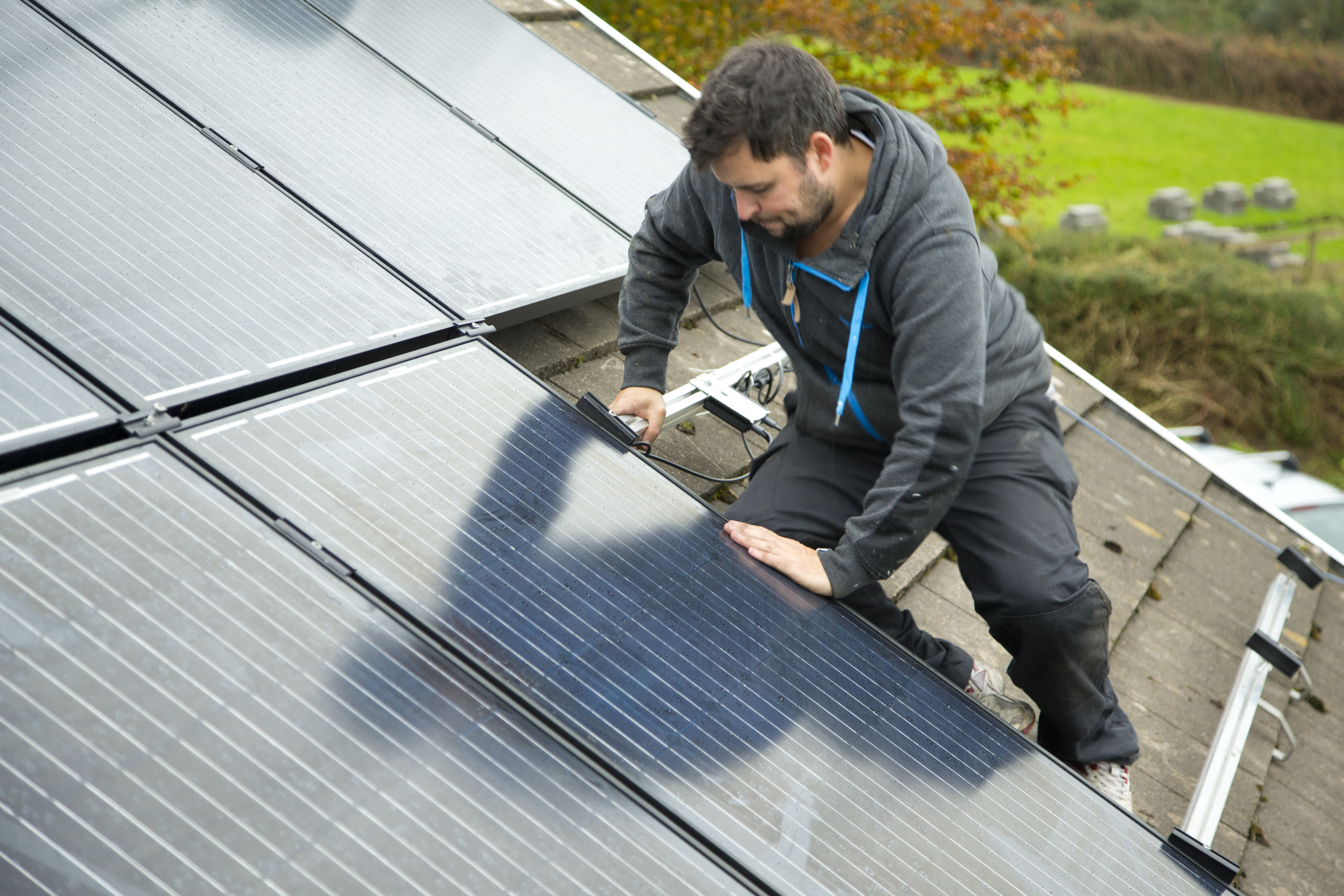Solar professionals expect demand for residential solar panels to rise thanks to recent legislation that extends solar tax credits. This article explores how installers are preparing to meet the increased demand. Looking to expand your solar business? Talk with a Panasonic solar specialist today and get your questions answered about becoming an authorized Panasonic installer .
Companies that install residential solar panels are feeling pretty bullish in the wake of the passage of the Inflation Reduction Act, telling researchers in a recent survey that they expect to hire an additional 340,400 workers over the next five years to meet surging demand.
The survey of 3,259 solar installation companies was conducted by SolarReviews, an independent solar panel comparison website.
Of the participating companies, 95% said they anticipate their business will grow as a result of the Inflation Reduction Act's passage, and their enthusiasm suggests there could be as much as a 148% increase in solar jobs just from the hiring of installation companies alone.
This increase will take the total number of people employed in the residential solar sector to approximately 570,400, equating to 63% of the number of people employed by the fossil fuel sector, which is approximately 908,400.
Most respondents — 76% — said the aspect of the act they were most excited about is the enhanced solar tax credit, otherwise known as the Residential Clean Energy Credit.
Under the terms of the IRA, home owners who install solar energy equipment at their residence from now through the end of 2032 are entitled to a nonrefundable credit off their federal income taxes equal to 30% of eligible expenses.
According to the U.S. Department of Energy qualifying expenses include installing solar photovoltaic panels, PV cells to power attic fans or storage batteries.
Also included are the cost of labor for on-site preparation, assembly or original installation, as well as permitting fees, inspection costs and developer fees.
The credit also applies to all equipment needed to get the solar system running, including wiring, inverters and mounting equipment, and sales taxes on eligible expenses.
According to SolarReviews, solar jobs are inherently local, available across the country, spread over many small employers and offer the opportunity for employees to start their own businesses with little capital.
They also employ a variety of different types of professionals from engineers and electrical contractors to finance and administration staff.
Dan can be reached at dan@thewellnews.com and @DanMcCue
The post Residential Solar Firms See Boom in Passage of Inflation Reduction Act appeared first on The Well News | Pragmatic, Governance, Fiscally Responsible, News & Analysis.
This article was written by Dan McCue from The Well News and was legally licensed through the Industry Dive Content Marketplace. Please direct all licensing questions to legal@industrydive.com.





